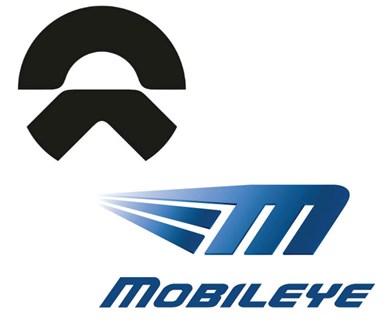Nio, Mobileye Ally on Self-Driving Cars in China
Chinese electric-car startup Nio Inc. and Intel Corp.’s Mobileye unit will partner to develop autonomous vehicles for China’s consumer market.
Chinese electric-car startup Nio Inc. and Intel Corp.’s Mobileye unit will partner to develop autonomous vehicles for China’s consumer market.

The partners say Nio will mass-produce a Mobileye-designed Level 4 self-driving system and install it in Nio EVs for sale to consumers and use by ride-hailing services. Mobileye will market a variant of the latter application to other markets.
Mobileye tells Reuters that the two companies intend to debut a first-generation system in China in 2022.
Under the partnership, Nio will equip future EVs with Mobileye’s automated vehicle technologies. The package consists of Mobileye’s EyeQ system-on-a-chip, sensors (cameras, lidar and radar) and other hardware, driving algorithms, safety software and mapping technology.
Mobileye technologies already are used by nearly 30 carmakers in various advanced driver assistance systems, such as lane departure and blind spot warning features. So-called ADAS features are elements of robotic-driving platforms.
In 2017 Intel acquired a majority stake in Mobileye for $15.3 billion.
RELATED CONTENT
-
Things to Know About Cam Grinding
By James Gaffney, Product Engineer, Precision Grinding and Patrick D. Redington, Manager, Precision Grinding Business Unit, Norton Company (Worcester, MA)
-
Choosing the Right Fasteners for Automotive
PennEngineering makes hundreds of different fasteners for the automotive industry with standard and custom products as well as automated assembly solutions. Discover how they’re used and how to select the right one. (Sponsored Content)
-
TRW Multi-Axis Acceleration Sensors Developed
Admittedly, this appears to be nothing more than a plastic molded part with an inserted bolt-shaped metal component.








